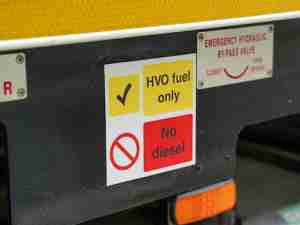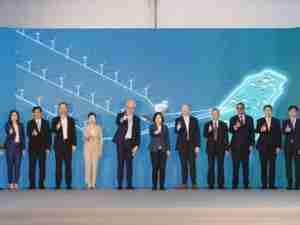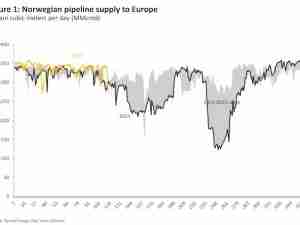Venezuela’s President Maduro Personally Sanctioned by U.S.
By: Jose Enrique Arrioja and Saleha Mohsin | Jul 31 2017 at 05:00 PM | International Trade
The Trump administration sanctioned Venezuela’s President Nicolas Maduro on Monday, accusing him and his government of undermining democracy in the South American country.
In an unusual move directed at a head of state, the Treasury Department acted after a vote Sunday that was a step toward rewriting his country’s constitution. The designation freezes any of Maduro’s assets that are subject to U.S. jurisdiction and prevents anyone in the U.S. from dealing with him.
The administration stopped short of a more significant penalty that had been under consideration: banning imports of Venezuelan oil. Asked about that possibility, Treasury Secretary Steven Mnuchin said only that the U.S. doesn’t want to “do anything that will hurt the Venezuelan people.”
“By sanctioning Maduro the United States makes clear our opposition to the policies of his regime and our support for the people of Venezuela,” Mnuchin said during a press briefing at the White House. “As we continue to monitor this situation we will continue to review all of our options.”
Maduro is the fourth head of state sanctioned by the U.S., according to Mnuchin. North Korea’s Kim Jong Un, Zimbabwe’s Robert Mugabe and Syria’s Bashar al-Assad are also on Treasury’s list of “specially designated nationals.”
An official from Venezuela’s Office of the President declined to comment, and calls placed to the Information Ministry weren’t immediately returned.
The constituent assembly chosen Sunday will meet as soon as this week to discuss changing the charter rewritten under former socialist leader Hugo Chavez, who is still revered as the inspiration for the revolution that Maduro claims to lead. The opposition says the rewrite is meant to silence the government’s critics in congress and delay general elections.
Maduro, described by Mnuchin as a dictator, has presided over an increasingly autocratic regime that has imperiled the country’s six-decade democracy and left the economy and society in shambles. The country has become engulfed in a political and economic crisis that has soldiers patrolling the streets and citizens stockpiling scarce food and water.
The U.S. had increased its pressure on Maduro’s government ahead of the vote, with President Donald Trump promising “strong and swift economic actions” if it took place.
Venezuela, a founding member of OPEC, has the world’s largest proven reserves and is South America’s largest oil exporter. It’s the third-largest supplier to the U.S.—sending 10 percent of its imports last year—and the top supplier to refineries on the U.S. Gulf Coast, home of the largest cluster of refiners in the world.
Less than a week before Sunday’s vote, the U.S. sanctioned 13 senior Venezuela officials, including the interior minister and the national oil company’s vice president for finance, which sparked defiance and condemnation from Maduro. In February, it put Venezuelan Vice President Tareck El Aissami on a list of foreign nationals subject to economic sanctions because of suspected ties to the narcotics trade.
Oil Imports
There was tension inside the White House in recent weeks about which additional measures to adopt, including the possibility of banning oil imports, according to people familiar with the discussions. The debate reflected concerns over the potential impact on U.S. gasoline prices and over the humanitarian situation in Venezuela, said the people, who asked not to be identified discussing internal deliberations.
While the National Security Council views limiting Venezuelan crude as a powerful weapon, the State Department has argued that cutting off a major piece of the country’s foreign trade could harm already suffering Venezuelans.
The American Fuel and Petrochemical Manufacturers, the largest association of U.S. refiners, had urged Secretary of State Rex Tillerson, Commerce Secretary Wilbur Ross and other cabinet officials to exempt Venezuelan crude imports from a possible sanctions package.
Bets on a Venezuelan default are climbing. The implied probability of the country missing a payment over the next year has risen to 62 percent, according to data compiled by Bloomberg on credit-default swaps. That’s the highest level since March 2016.
Investors’ bets reflect international concerns about the nation’s shaky political underpinning. The European Union “has grave doubts” about whether the election results can be recognized, spokeswoman Mina Andreeva said Monday.
Brazil, Colombia, Peru, Argentina, Chile and Panama issued statements saying they wouldn’t recognize Sunday’s vote, while U.S. Ambassador to the United Nations Nikki Haley said she would not accept an illegitimate government.










